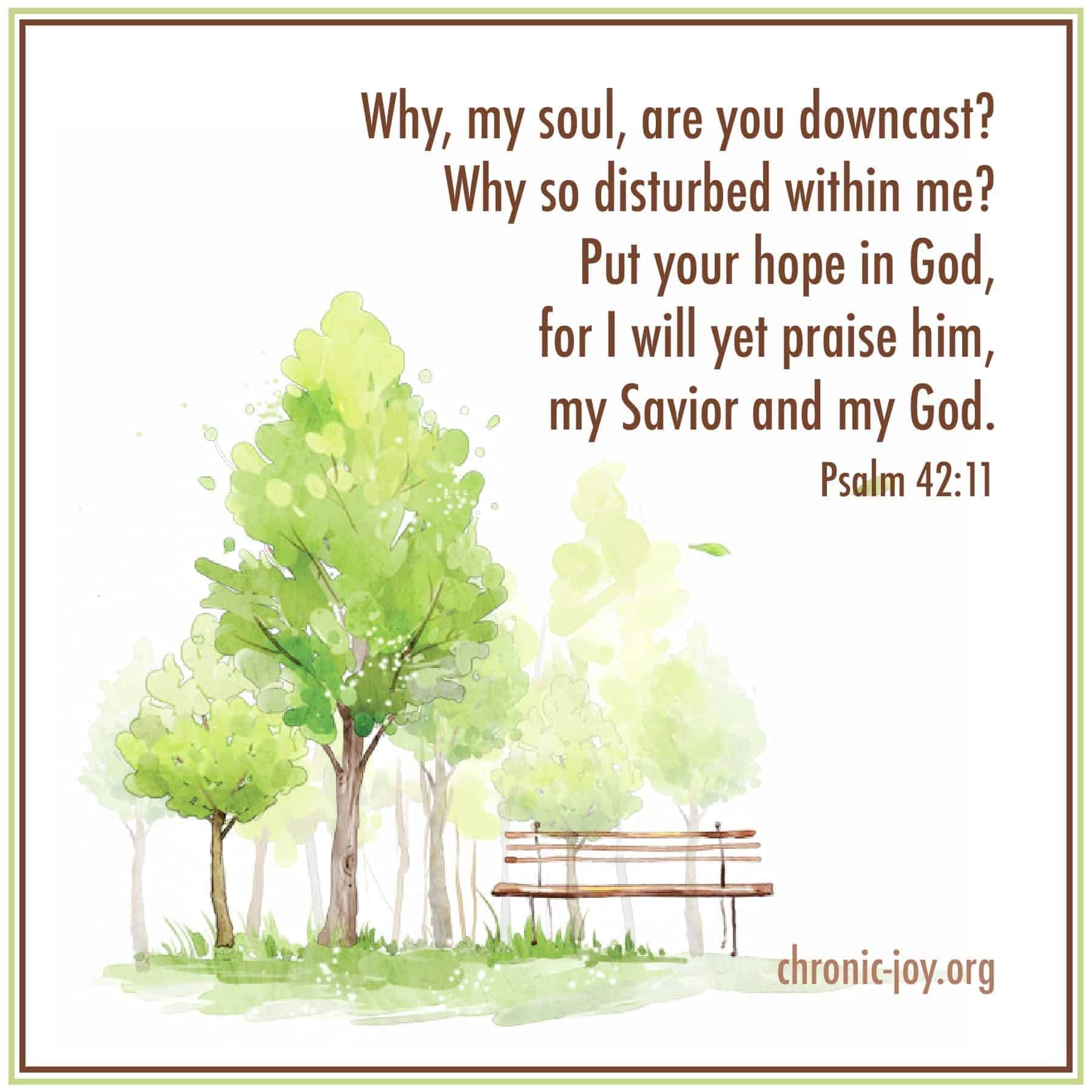
Why, my soul, are you downcast? Why so disturbed within me? Put your hope in God, for I will yet praise him, my Savior and my God. (Psalm 42:11)
I can’t remember a time when chronic depression wasn’t a nemesis for me. As a child, I often felt an overwhelming sadness and wept without understanding why. Now, I’m a 67-year-old Christian college professor who still wanders occasionally into the dark fog of hopelessness.
During my times of depression, several acquaintances have said things to me that frustrated me more than helped. As a conservative Christian, I can offer advice on how and what NOT to say to persons who are experiencing a major depressive episode.
1. Have you been having your quiet time lately?
A lady in my Sunday School class posed this question after I asked for prayer during a depressive episode. I told her that I was consistently reading God’s Word and praying. Her nonverbal reaction indicated that she didn’t believe me.
Causes of chronic depression are too varied and complex to blame on anemic faith or undisciplined devotional habits. I may have an upbeat day when I neglect time with the Lord, or I may have a dark day when I spend unhurried time with Him.
If depression correlates with stunted spiritual development, how do you explain the exceptional fruitful ministries of giants of the faith such as David Brainerd and Charles Spurgeon?
2. You won’t be depressed when you get to heaven!
This statement teems with truth. Bodily pain, vulnerability to sin, strained relationships, and a proclivity for despondency are all temporary afflictions (Rev. 21:4).
However, a depressed state can clog the despondent person’s mental and emotional receptors due to a debilitating sense of despair. When a person is plagued by high humidity in the heart that smothers motivation for daily tasks or when they can’t imagine ever laughing again, the comment about heaven can come across as glib or superficial.
A depressed person needs your physical presence and heartfelt prayers for the Holy Spirit’s comfort.
The close friend who left work to come alongside me on a rough day didn’t quote Bible verses to me. He understood that I could probably recite most verses he might mention verbatim. Instead, he wept for me, whispered prayers for me, and sat beside me for an extended period.
My friend’s presence was God saying, “I haven’t forgotten you. I love you.”
3. I’ll pray for this evil spirit of depression to leave you.
Once again, I must qualify what I’m about to say.
I firmly believe in the spirit world, both the angelic and the demonic. Because of the vulnerable state a depressed person is in, Satan may increase his attacks. Some depression may originate from Satan, especially when the despondency is a consequence of a pattern of sin in a sensitive believer.
Yet this remark falsely assumes that all depression stems from demonic oppression or attack, with the cure being warfare praying that casts out the evil spirit.
The research is crystal clear: chronic depression is often associated with a depletion of a brain chemical, such as serotonin. A tendency for depression occurs in family lines, showing a genetic predisposition. Even physical diseases such as diabetes or hypothyroidism may wreak havoc on emotions and result in an extended dark mood.
Assigning a spiritual cause to what may be a physically-induced condition could keep someone from getting the medical intervention they need.
No matter what causes depression, prayer and other spiritual weapons must be wielded. There is a spiritual battle involved in how we respond to despair (Will faith or hopelessness have the last word?) – but it’s an oversimplification to blame all depression on an evil spirit.
When it comes to things NOT to say to a depressed person, what would you add to this list?


Dr. Terry Powell
Author and Professor
Terry is a Faculty Emeritus and an adjunct professor in Church Ministries at Columbia International University. He and his wife, Dolly, have been married for 50 years and share two sons, a daughter-in-law, and a grandson. Terry writes about faith and depression at Penetrating the Darkness. Oh God, I’m Dying! How God Redeems Pain for Our Good and His Glory tells of God's sustaining grace in the life of co-author Dr. Mark Smith, who is an effective Christian university president despite suffering daily pain from a near-fatal accident.

Recent Comments